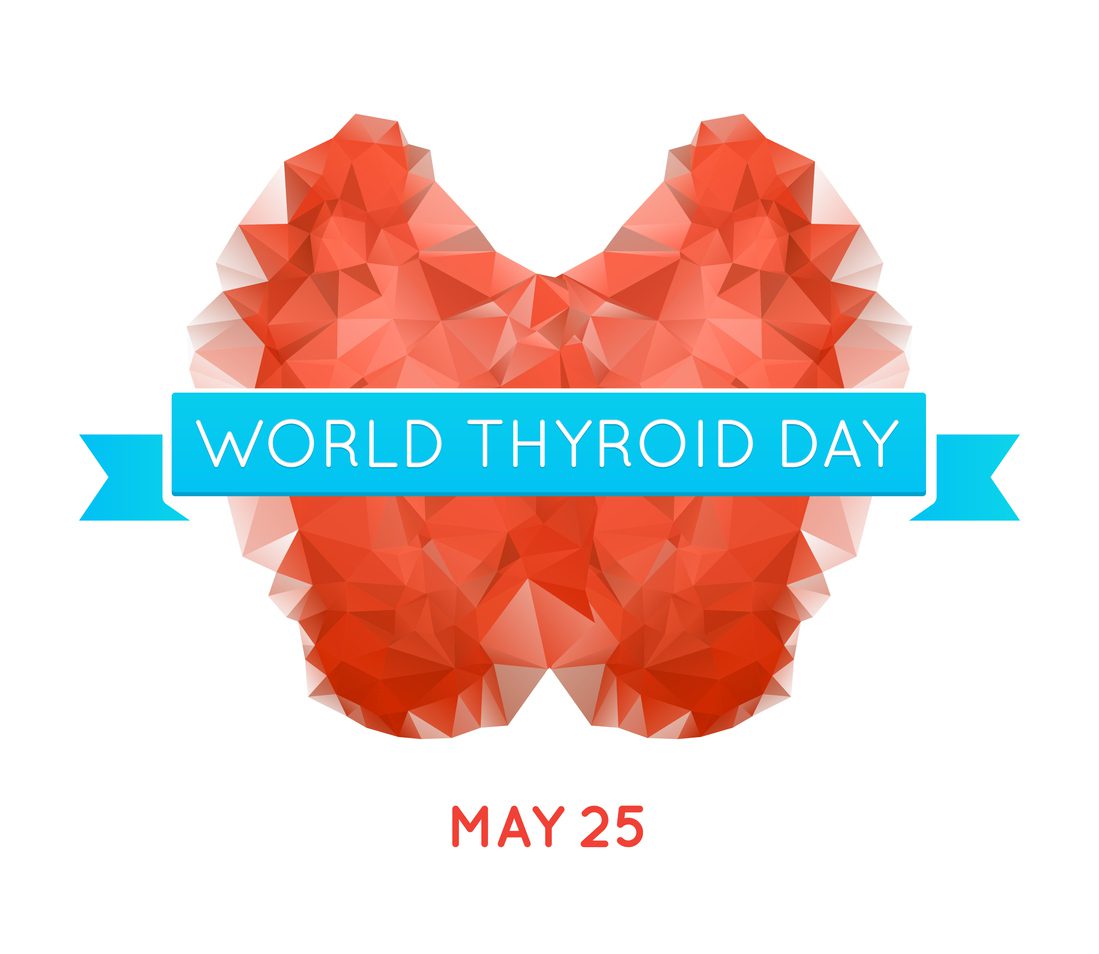Search by Color or Cause


Support World Thyroid Day on May 25! The thyroid is a small butterfly-shaped gland at the base of the neck. Thyroid Disease affects as many as 30 million Americans. However, about 60% of people with Thyroid Disease don’t know they have it. World Thyroid Day takes place on May 25 each year. Wear a paisley awareness pin to call attention to Thyroid Disease.
The thyroid gland serves many functions in the body. For example, it produces critical hormones which help regulate the brain, heart, kidneys, liver, skin, metabolism, and growth. In addition, it even helps with some functions of the nervous system. Ensuring the thyroid gland is healthy and functioning properly is vitally important to the body’s overall well-being. When the thyroid gland is overactive or under-active, it can impact the entire body. As a result, this can cause Thyroid Disease. Additionally, symptoms of Thyroid Disease can vary from person to person and often mirror other medical conditions. For this reason, thyroid conditions can often be overlooked or misidentified.
Undiagnosed thyroid issues can increase the risk for other serious conditions such as cardiovascular disease, obesity, osteoporosis, and infertility. However, most thyroid diseases are life-long conditions that can be managed with medical attention. Personalized Cause is committed to raising awareness and educating the public about thyroid health and diseases, so patients know when to speak with their health care professionals.
Thyroid Disease, however, can be managed. The first step is to talk with a health care professional or endocrinologist to ensure the thyroid gland is healthy and functioning properly. An endocrinologist is a doctor that specializes in hormone-related diseases and conditions, including all those related to the thyroid gland. An endocrinologist helps with, for example, blood tests and scans to evaluate the thyroid condition.
Your thyroid releases and regulates thyroid hormones that control metabolism. Metabolism is a process where the food taken into your body is transformed into energy. This energy is used throughout the entire body to keep many of the body’s systems working correctly. Think of metabolism as a generator. It takes in raw energy and uses it to power something bigger.
The thyroid controls metabolism with a few specific hormones — T4 (thyroxine, contains four iodide atoms) and T3 (triiodothyronine, contains three iodide atoms). These two hormones are created by the thyroid and tell the body’s cells how much energy to use. When the thyroid works properly, it maintains the right amount of hormones to keep metabolism working at the right rate. As the hormones are used, the thyroid creates replacements.
This is all supervised by something called the pituitary gland. Located in the center of the skull, below the brain, the pituitary gland monitors and controls the amount of thyroid hormones in the bloodstream. When the pituitary gland senses a lack of thyroid hormones or a high level of hormones in the body, it adjusts the amounts with its own hormone. This hormone is called thyroid stimulating hormone (TSH). The TSH is sent to the thyroid and tells the thyroid what needs to be done to get the body back to normal.
Thyroid disease is a general term for a medical condition that keeps the thyroid from making the right amount of hormones. The thyroid typically makes hormones that keep the body functioning normally. When the thyroid makes too much thyroid hormone, the body uses energy too quickly. This is called hyperthyroidism. Using energy too quickly will do more than make you tired. It can make your heart beat faster, cause you to lose weight without trying and even make you feel nervous. On the flip-side of this, your thyroid can make too little thyroid hormone. This is called hypothyroidism. When you have too little thyroid hormone in the body, it can make you feel tired, you might gain weight and even be unable to tolerate cold temperatures.
These two main disorders can be caused by a variety of conditions. They can also be passed down through families (inherited).
Thyroid disease can affect anyone. This includes men, women, infants, teenagers and the elderly. It can be present at birth (typically hypothyroidism) and it can develop as you age (often after menopause in women).
Thyroid disease is very common. For example, an estimated 20 million people in the Unites States have some type of thyroid disorder. A woman is about five to eight times more likely to be diagnosed with a thyroid condition than a man.
You may be at a higher risk of developing a thyroid condition if you:
The two main types of thyroid disease are hypothyroidism and hyperthyroidism. Both conditions can be caused by other diseases that impact the way the thyroid gland works.
Conditions that can cause hypothyroidism include: